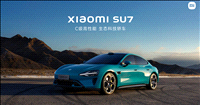Google to improve Chrome scrolling experience using IE standard
27 Mar 2015
Google is looking to improve the scrolling experience in its Chrome browser using a standard, first introduced by Microsoft for its Internet Explorer browser.
Scrolling performance and general touch support for Chrome browser on a Windows tablet had been less than impressive and Google aimed to fix it by supporting Microsoft's Pointer Events standard.
According to a report in The Verge, Google had for long focused its efforts on supporting Touch Events, a method used by Apple in its Safari browser. However, Microsoft, Mozilla, and Opera had all adopted Pointer Events.
Now Google has announced that on the basis of feedback from the web community, it had decided to bring in the change. With support for Pointer Events, scrolling and touch interactions are expected to improve dramatically in Chrome.
According to Google's Rick Byer, replacing all touch event handlers with pointer event handlers would address the main longstanding source of scroll-start jank seen on Android. The company remained optimistic of being able to implement the new standard alongside its existing Touch Events support without affecting performance.
However, the change would not be immediately evident as Google would take time to build the support and test it with nightly and weekly versions of Chrome.
The Pointer Events API which combines all of the touch, mouse, and stylus interactions with a browser into a single set of programmable events had been implemented in Internet Explorer since IE 10 and had also been supported by Mozilla's Firefox team. It is, however, currently implemented only on the Windows 'Metro' version of the browser. However, last year, despite having been part of a W3C working group on pointer events, the Chrome team had announced it would rather develop separate APIs for hardware pointing devices and touch than support the unified Pointer Events API. The Microsoft approach had even been rejected by Apple's Safari team so far.
A single API to rule all the pointing held much appeal for developers and when the Pointer Events specification that had evolved out of the Microsoft API became a W3C recommendation in February and jQuery UI project lead Scott Gonzalez wrote in a blog post: "We love Pointer Events because they support all of the common input devices today - mouse, pen/stylus, and fingers - but they're also designed in such a way that future devices can easily be added, and existing code will automatically support the new device."













.jpg)






.jpg)









